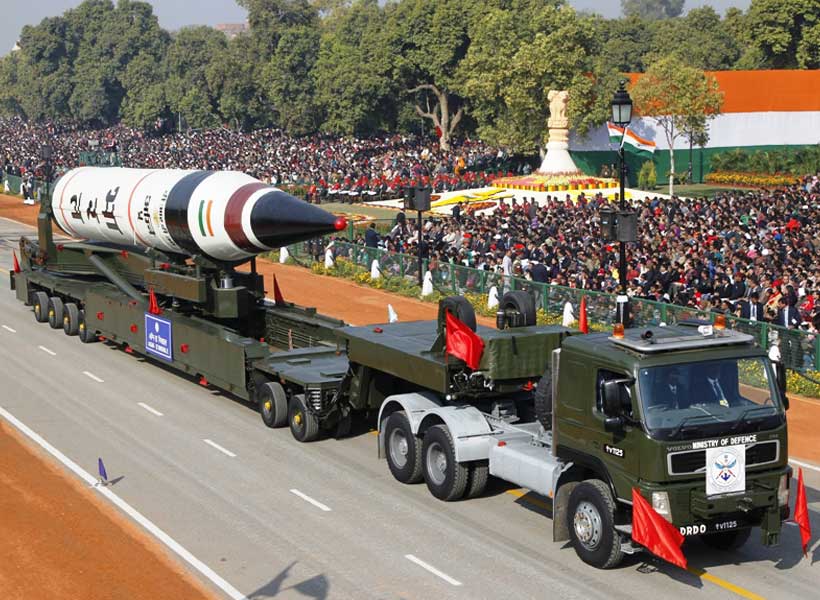
by Qurat Hashmi 13 July 2023
Since their creation, nuclear weapons have been regarded as the top means for maintaining national security. But in order to improve their nuclear arsenals, countries and nations must also make sure that there are reliable security measures in place. It is not an exaggeration to say that terrorist attacks on nuclear and radiological facilities in India have escalated daily, given that the International Atomic Energy Agency (IAEA) has documented many illicit operations concerning nuclear and radiological materials nationwide. In a location where there are several transnational security risks, like human trafficking and non-state actors, it is important to pay particular consideration to institutional infrastructure, laws, and practices related to nuclear safety and security. India is a nuclear-armed country; however, the safety of India’s nuclear power plants has been called into question in recent years.
Therefore, in light of this, a lot of nuclear specialists are concerned that, despite India’s slow growth in military technology, it still lacks adequate security measures for its nuclear weapons and related materials. India, which aspires to play a leading role in South Asia and the rest of the world, has already been the scene of numerous nuclear accidents, including failures at the Tarapur nuclear power plant in 1989 and 1992, the Narora fire incident in 1993, the Rajasthan Atomic Power Station (RAPS) leakage incident in 1995, the Kalpakkam incident in 2002, and the Mayapuri incident in 2010, as mentioned in a piece of work by CISS. As India has a history of several nuclear material theft cases since the turn of the century, in addition to the aforementioned incidents, “the protection of nuclear technology is, nevertheless, not restricted to the power facilities solely.”
Despite its mistakes, India doesn’t appear to put enough effort into protecting its nuclear weapons and other associated materials. Particularly, there have been worries regarding the security of the guarded nuclear power facilities in India because they are not subject to the same examinations and guidance by the International Atomic Energy Agency (IAEA). Eight of the twenty-two nuclear power reactors in India fall beyond the IAEA’s purview, making up the majority of the country’s nuclear power capacity. There is an increased likelihood that these facilities will be utilized to make nuclear bombs or other illegal materials as a result. Additionally, these plants are found in regions that are highly susceptible to natural calamities.
The IAEA determined that India’s guarded nuclear power facilities were “not in compliance” with global safety requirements in a study that appeared in 2017. Additionally, it was discovered by the investigation that India has not taken the necessary actions to resolve the safety issues at these facilities. The Kudankulam Nuclear Power Plant cyberattack in September 2019 served as a reminder of how crucial it is to protect the nation’s cyber-nuclear security infrastructure. A data breach attempt by similar malware that attacked Kudankulam was reported to ISRO.
The stealing of uranium and radioactive material is a common trend; it has been attempted more than 20 times in India during the past three decades, according to reports. In the Eastern State of Jharkhand, seven people were detained on June 4, 2021, according to reports in the Indian media. They were found to be in possession of about 6.4 kilos of uranium. The arrest of 7 kilos of extremely radioactive uranium from a scrap dealer earlier in May 2021—worth 210 million Indian rupees—raised significant questions about India’s nuclear security capabilities. 200 kg or more of radioactive and nuclear material are said to have vanished from Indian installations during the previous 20 years. This will have grave security and safety repercussions for the neighboring states which cannot be ignored at any stage.
Thus, India apparently adheres to a nuclear security culture. However, despite being repeatedly busted, it has severely fallen short in its efforts to safeguard the illegal trade in radioactive materials. The implications of India’s unsafe guarded nuclear power plants for the region are even more serious. These facilities have the potential to produce catastrophic health and ecological effects in the event of a nuclear catastrophe. Furthermore, if the event ignites a military battle, it may result in a nuclear war.
Contrary to India’s nuclear safety and security record Pakistan has proved itself as a responsible Nuclear weapon state. Pakistan’s accomplishments in nuclear safety and security have been praised by the International Atomic Energy Agency (IAEA). The IAEA lauded Pakistan’s dedication to nuclear safety and security in its most recent report, 2021, as well as its success in putting IAEA safeguards into practice. Pakistan has improved significantly in recent years, according to the study, in terms of nuclear safety and security. The nation has enhanced its collaboration with the IAEA, reinforced its regulatory framework, and put in place a number of additional safety measures.
To conclude that are india;s nuckes safe and secure? It is evident that existence of poorly guarded nuclear power reactors in India would inspire other nations to establish their own nuclear weapons programs. The likelihood of nuclear proliferation and instability in the area would also rise as a result. Regional and global security depend on the safety of India’s nuclear power reactors. Moreover, India should take action to solve the security issues raised by its guarded nuclear power reactors. This is crucial to avoiding a nuclear disaster that might have catastrophic effects on the area.
